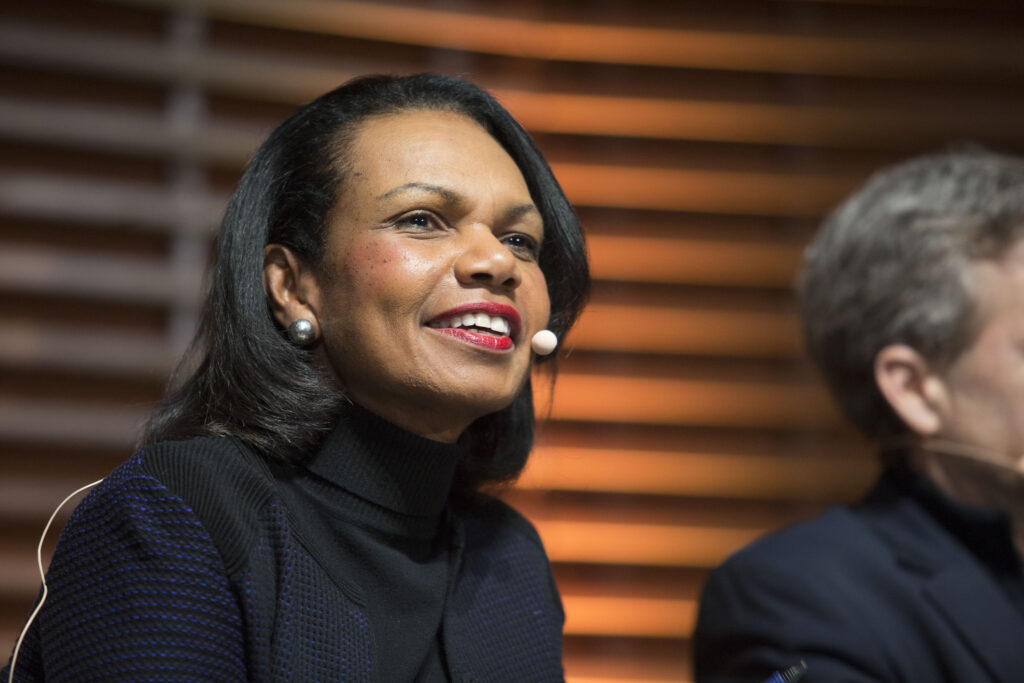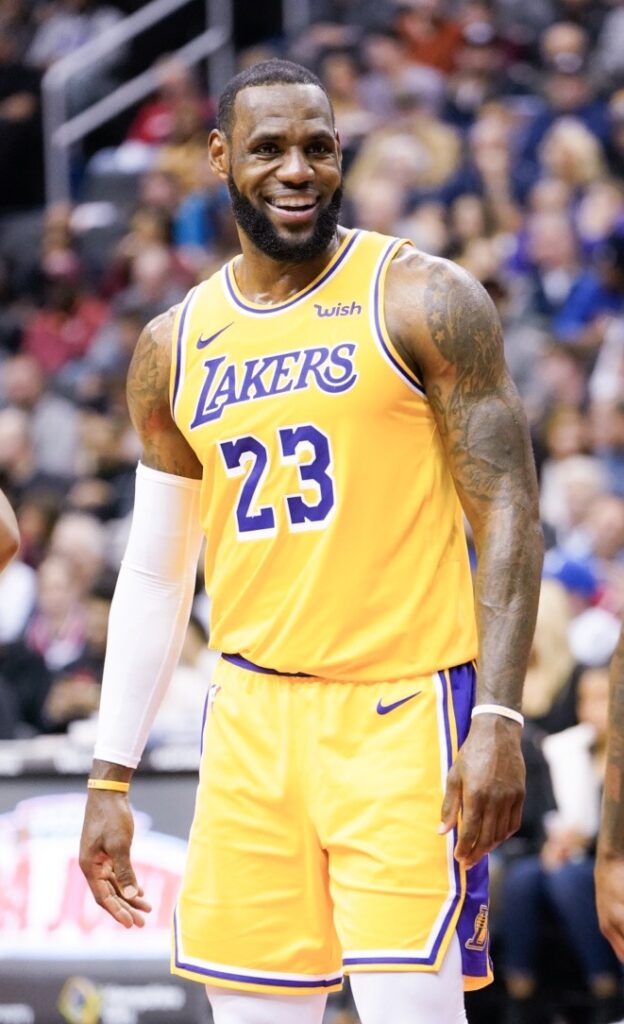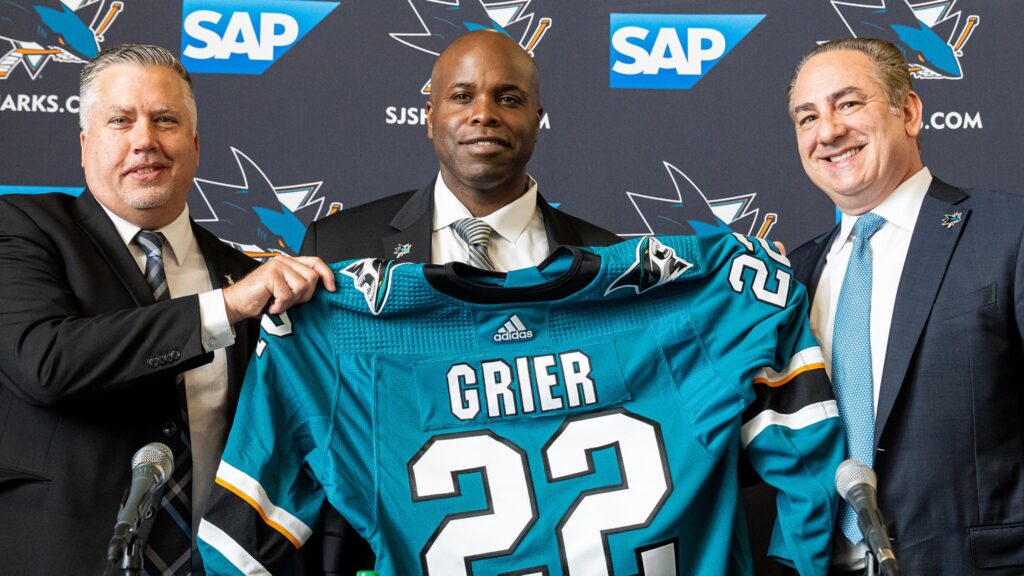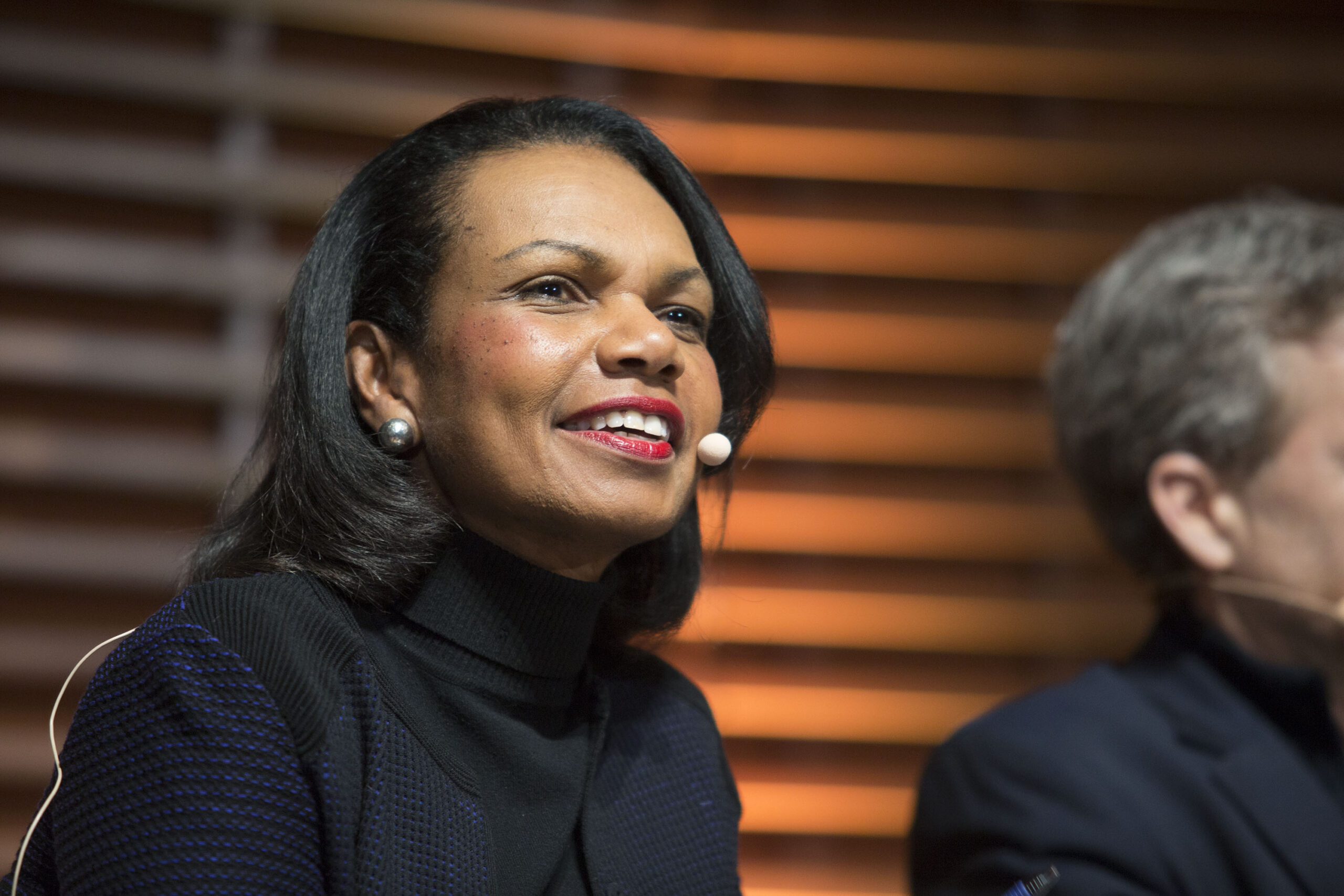Ownership and management have long been the final frontiers for Black athletes, areas where they’ve generally been excluded or ignored. More NBA teams have hired Black coaches than either the NFL or MLB, and certainly the NHL.
And there currently is only one majority Black owner in American pro team sports. That would be Michael Jordan with the Charlotte Hornets. There are none in either the NFL, MLB or NHL. However, things are starting to change, albeit slowly.

When it comes to majority ownership, there’s Michael Jordan — period. He joined the then Charlotte Bobcats as a minority investor alongside BET founder Robert Johnson in 2006,. The NBA Board of Governors approved Jordan’s $275 million purchase of the team in 2010 (they changed their name to the Hornets in 2014). Jordan expanded his ownership profile into NASCAR last year. He’s partnered with Denny Hamlin to own a NASCAR Cup team with Bubba Wallace behind the wheel, giving him management control in two sports.
More big news on the NFL ownership front came in July, when former U.S. Secretary of State Condoleezza Rice joined Starbucks chairwoman Mellody Hobson as part of the new ownership group of the Denver Broncos. Their additions lessened the disappointment regarding hopes that either Robert Smith, Byron Allen or Jay-Z might become majority owners.
But the ultimate winner was Walmart heir Rob Walton and the Walton-Penner Family Ownership Group. They agreed to buy the Broncos for $4.65 billion. Final approval of that deal is expected August 9. Walton will be majority owner, while his daughter, Carrie Walton Penner, and son-in-law, Greg Penner, will become minority owners. They were especially happy to add Rice, whose interest and involvement in football goes back decades.
“We’re pleased to welcome former Secretary of State Condoleezza Rice to our ownership group,” Rob Walton said in a statement. “A highly respected public servant, accomplished academic and corporate leader, Secretary Rice is well known as a passionate and knowledgeable football fan who has worked to make the sport stronger and better. She is the daughter of a football coach and served on the inaugural College Football Playoff Committee. She moved to Denver with her family when she was 12-years-old and went on to attend the University of Denver for both college and graduate school. Her unique experience and extraordinary judgment will be a great benefit to our group and the Broncos organization.”
A political scientist and diplomat, Rice was the first Black woman to serve as United States Secretary of State, and also has been a professor of political science at Stanford University. In 2013, she was selected as one of the 13 members of the inaugural College Football Playoff Committee, serving through the end of the 2016 football season.
“It is an honor to be part of this ownership group,” Rice said in a statement. “Football has been an integral part of my life since the moment it was introduced to me, and I am thrilled to be a part of the Broncos organization today. I spent much of my younger years in Denver, so to be able to combine my love of the game with my love for this great city and team is an adventure of a lifetime and a great opportunity.”
Hobson doesn’t have the football track record of Rice, but certainly has her own impressive portfolio in business. In 2020, Starbucks appointed Hobson to head its board, making her the only Black woman to chair the board of a Fortune 500 company. She’s also the co-CEO of Ariel Investments, a global value-based asset management firm, and previously served as board chair of the Estée Lauder Companies and DreamWorks Animation. The NFL did not disclose what percentage of ownership Rice and Hobson will have, but are certainly glad to get the positive publicity of having Black women as part-owners of a team.
Venus and Serena Williams were first Black women to own a team
Contrary to some published reports, Rice and Hobson are not the first two Black women to be part owners of an NFL franchise. Apparently a lot of folks missed the announcement back in 2009 when Venus and Serena Williams purchased minority shares of the Miami Dolphins, making them the first Black women to enjoy that distinction. They remain in that capacity, and as recently as 2021, Venus Williams attended the Dolphins’ final home game.
Because of the extreme secrecy the league keeps over its daily affairs, how much direct involvement any of these women have in team operations is only speculative. But at least in the cases of Rice and Hobson, indications are they will be kept apprised of team actions and be full participants in multiple decisions.
King James leads the pack
Another trend emerging is active players becoming owners of other teams or companies. The leader by a long shot there is Lebron James. He became a billionaire this year, and his portfolio would be impressive for anyone, but especially for the person widely viewed as the face of the NBA, and still very much an active player. Through a combination of savvy investment and money management, James has amassed both wealth and multiple ownerships. He’s earned more than $385 million in salary from the Cleveland Cavaliers, Miami Heat and Los Angeles Lakers as the NBA’s highest-paid active player.

But more importantly, he’s never opted to just be featured in endorsements, or be a pitchman for corporations. From the time he cut his first deal with Nike in 2003 at age 18, he’s let everyone know he was looking at long-term deals and career associations rather than short-term, get rich quick schemes. He made a lifetime agreement with Nike in late 2015 that pays him tens of millions annually. He’s since supplemented it with several new deals with such brands as AT&T, PepsiCo and Walmart. He’s also been a part-owner of the English soccer team Liverpool FC since 2011.
Operating on the principle of being a partner in any venture, James always structures deals to give him equity in brands. He walked away from an endorsement agreement with McDonald’s worth an estimated $15 million over four years in 2015, gambling on the Blaze Pizza chain, where he’s an investor. He’s also taken equity in such brands as smart gym-maker Tonal and ride-share giant Lyft. Media and communications is another area of ownership emphasis for James.
SpringHill is the TV and movie production outfit built by James and business partner Maverick Carter. Last October, outside investors — including Boston Red Sox owner Fenway Sports Group and Epic Games — bought into the venture. This helped produce the $163 million (worldwide box office gross) “Space Jam: A New Legacy” and HBO documentary “What’s My Name: Muhammad Ali”—at a $725 million valuation.
James, remains the biggest shareholder. He’s used his vast fortune to help others as well, most notably the Lebron James Family Foundation, which has opened an elementary school, housing complex, retail plaza/community center and medical center in his hometown of Akron, Ohio.
Kansas City Chiefs star QB Patrick Mahomes and Milwaukee Bucks superstar Giannis Antetokounmpo aren’t nearly as involved in multiple ownership areas as James, but each has made a niche in their home cities. Mahomes is both a part-owner of the Kansas City Royals baseball team and the city’s soccer franchise, Sporting Kansas City. He invested in the Royals back in 2020, then Sporting Kansas City last year. Making it a family affair, his fiancee Brittany Matthews also owns an interest in the Kansas City NWSL women’s soccer team.
Last August, after leading the Milwaukee Bucks to their first NBA title in 50 years, Antetokounmpo became a minority owner of the Bucks. The deal was announced by the team’s majority owner Mark Attanasio, who thanked the athlete for his commitment to the team and to Milwaukee.
“The City of Milwaukee means so much to me,” Antetokounmpo said. “I am honored to be joining the Brewers ownership group to further my commitment and dedication to this great community. I take great pride in my city and I’m excited about what we can build together.” During the press conference, Attanasio pointed out Antetokounmpo is the first new individual investor added to the ownership group since he purchased the team. He also said there was unanimous support among the current members of the ownership group to add Antetokounmpo.
NBA most progressive of pro-sports organizations
The NBA, with a 75 percent Black population, is generally regarded as the most progressive sports league, though that’s certainly due more to the dismal performances of its competitors in both ownership and management circles. The league currently has one Black president of operations, Masai Ujiri (Toronto) and two vice presidents, Will Dawkins (Oklahoma City) and Tayshaun Prince (Memphis), There are 10 other Black general managers and nine Black assistant general managers. The head coaching numbers for the 2022-23 season are at an all-time high. And 15 teams will have Black head coaches, breaking the previous record of 13 in 2012-13. Now how many last and for how long is yet to be determined, but at least in terms of head coaching slots, the NBA is far ahead of the NFL and certainly MLB.
Over the summer, news was also made in a league seldom associated with Blacks period, and too often in a negative fashion when there is racial discussion. The biggest off-season event in the NHL came with the announcement that Mike Grier would become the San Jose Sharks new general manager. It’s no exaggeration to label hockey America’s whitest team sport. As of last season 97 percent of the NHL’s players were white. The remaining three percent included 26 Blacks, 20 from Canada, and six African American. As recently as the early 1970s, the league was 100 percent white.
Mike Grier already made history in 1996. That year he became the first African American born and trained in the United States to make an NHL roster. He played 14 years n the league, and prior to a couple of months ago was the New York Rangers hockey operations advisor. But now, he’s the Sharks’ new general manager, the first Black man to hold that position in the league.
“I am extremely proud and grateful to be given the opportunity to be the general manager of the San Jose Sharks,” Grier said in a statement. “Along with my staff, I look forward to the challenge of building a fast, competitive, and hardworking team that Sharks fans will enjoy watching and be proud of.”

As a player whose forte was defense, Grier finished his career 10th among NHL forwards in blocked shots (315) and 33rd in hits (705).
“Mike’s successful career on the ice speaks for itself, but what impressed me the most were his leadership qualities and his overwhelming desire to win,” Sharks owner Hasso Plattner said.
History continues to be made
In July, the Las Vegas Raiders hired the first Black female team president in NFL history. Sandra Douglass Morgan, a Las Vegas native, was also the first Black city attorney in Nevada when she served for the City of North Las Vegas. Morgan was also the first person of color named chair of the Nevada Gaming Control Board. She’s currently an independent director at Allegiant Airlines, Caesars Entertainment and Fidelity National Financial Inc.
“It is the honor of a lifetime to join the Raiders at one of the most defining times in the team’s history,” Morgan said. “This team’s arrival in Las Vegas has created a new energy and opportunities we never dreamed possible. I look forward to taking this team’s integrity, spirit and commitment to excellence on the field into every facet of this organization.”
Both the Chicago Bears and Minnesota Vikings named Black men as new general managers this summer. The Bears hired Ryan Poles, once an undrafted free agent by the team in 2008, and a veteran of 13 years with the Kansas City Chiefs organization. The Minnesota Vikings named Kwesi Adofo-Mensah as its general manager. Adofo-Mensah formerly was a Wall Street trader and portfolio manager, and is part of the new generation of sports executives well schooled in analytics and advanced statistics. They join the Cleveland Browns’ Andrew Berry and Miami Dolphins’ Chris Grier.
Ironically, at this time there are more Black NFL general managers than head coaches, with only Mike Tomlin (Pittsburgh), Lovie Smith (Houston Texans) and Michael McDaniel (Miami Dolphins) holding head coaching positions. McDaniel prefers to identify as “biracial” or “interracial” as he has a Black father and white mother, but the NFL counts him among its Black coaches.
The league is currently facing an ugly racial bias lawsuit filed by former Miami Dolphins head coach Brian Flores. He alleges he wasn’t given serious interviews or consideration for head coaching jobs he interviewed for after his firing, and the league’s Commissioner Roger Goodell recently said the league “must improve its diversity record,” which no doubt at least partly accounts for the recent general manager/team president hires. The NFL this summer expanded its Rooney Rule, which requires teams to interview two minority candidates for any managerial opening, and rewards teams that develop assistants into future head coaches with additional draft choices. San Francisco got two for its role in preparing McDaniel.
But as bad as the NFL’s track record looks, it’s way ahead of MLB. A sport that was once the nation’s most popular among Black sports fans now risks becoming becoming irrelevant in many Black communities. The percentage of Blacks in both leagues was at eight (7.7 at the start of the 2022 season). There are just two Black managers, Dave Roberts (Los Angeles Dodgers) and Dusty Baker (Houston Astros) — and Baker is 72 and widely regarded as retiring after this season. There are no Black principal owners though Magic Johnson is a minority owner of the Dodgers. There are zero Black general managers. Kenny Williams of the Chicago White Sox is executive vice president of the club and MLB’s highest ranking Black executive.
On the minor league level, Brandon Bellamy’s purchase of an expansion team based in Gastonia, North Carolina, as part of the Atlantic League makes him pro baseball’s sole Black majority owner. The team begins play next spring. He’s the first Black majority owner in minor or major league baseball since Tom Lewis, who owned the Savannah Cardinals in the South Atlantic League in the late 1980s. Bellamy is the CEO of Velocity Companies, a Maryland real estate development group, His firm is building a 5,000 seat ballpark in Gastonia and developing the surrounding area into a new multi-sport complex called the FUSE District that will host concerts, retail establishments, dining and office space.
Baseball knows it has problems, and a lack of Black participation and interest is just one of them, alongside a fan base that’s nearly as old on average as that for golf, Whether it can or will address these problems no no knows.
But right now, Black people are making significant progress on the ownership and management front in the NBA and NFL, and none in MLB. Grier’s appointment may open some opportunities in the NHL, but for now, basketball and football are leading the way in providing chances for Blacks to be participants in other ways than on the field or the court..








